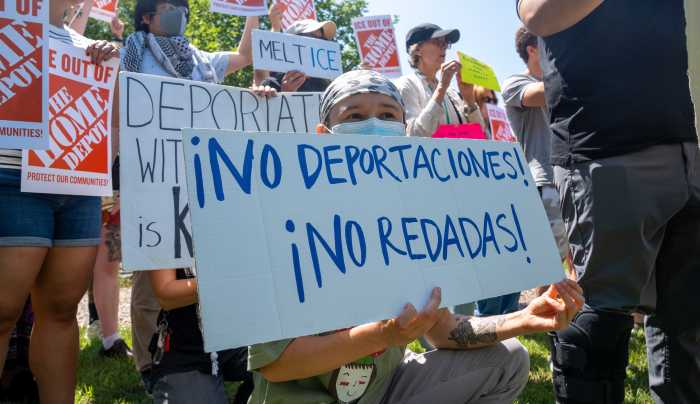The Age Of Foolishness
“It was the best of times, it was the worst of times, it was the age of wisdom, it was the age of foolishness, it was the epoch of belief, it was the epoch of incredulity, it was the season of Light, it was the season of Darkness, it was the spring of hope, it was the winter of despair, we had everything before us, we had nothing before us, we were all going direct to Heaven, we were all going direct the other way.”
Thus begins Charles Dickens’ A Tale of Two Cities, which for my money is the most memorable opening of any novel written in the English language. It encompasses all the nuances and shades of the vast human comedy, both its glory and absurdity. This past week was a good example of some of its foolishness. In an informal interview Dan Cathy, president of Chick-fil – A, a popular restaurant franchise, expressed his view that marriage should be between a man and woman.
This is hardly surprising when considering the franchise’s Southern Baptist roots; “Chick-fil- A” closes on Sunday to honor the Lord. In any other time but our own Cathy’s statement would have been so palpably obvious it would draw nothing more than a yawn. Marriage combined with fecundity was the deepest commitment and investment that couples could make to their civilization. Such sentiments are now often considered part of the myopic past; we are, after all, so much smarter and sophisticated than our poor, narrow-minded, hopelessly vacuous ancestors. Look how admirably this generation is managing the nation’s finances as we either uncomprehendingly or insouciantly march toward fiscal perdition.
The reaction against Dan Cathy was predictably swift and hostile: Eliot Spitzer, that paragon of public virtue, so ferociously advocated boycotting the franchise that you would have thought Chick-fil-A had declared war upon high-priced call girls. The Jim Henson Company petulantly pulled Muppet toys from children’s meals. Is there anything more contemptible than targeting little kids as a form of political protest? The mayor of Boston, not to be outdone in expressions of irrationality, started flapping his wings and squawking about stopping the infernal hordes at Chick-fil-A from infiltrating his city by threatening to impose special licensing and zoning requirements making it impossible to open shop. Meanwhile, Alderman Proco Moreno from the windy city of Chicago vowed that Chick-fil-A’s menacing shadow will not darken the morally pristine “ward” he represents while Rahm Emanuel, the city’s notoriously foul-mouthed mayor, demonstrated once again that the heart of a fool is in his mouth by superciliously proclaiming “that Chicago’s values are not Chick-fil-A’s,” meaning of course, there are no vacancies in the great metropolis.
What a bunch of rubes. I can’t remember the last time I heard such a gassy concatenation of sophomoric and imbecilic drivel—- though in our babbling, bloviating culture it was probably just the other day. Yet, for all the raucous hullabaloo this imbroglio has generated, one would have thought that Chick-fil-A has marshaled armed guards with attack dogs ready to pounce upon any non-heterosexual who would hazard walking on holy ground. But it’s just the opposite. All law-abiding customers are welcomed, as they should be, to enjoy the food and ambience. There is no evidence of “Chick-fil-A” not serving or hiring anyone because of their sexual orientation. It’s been a non-issue until a bunch of silly politicians opportunistically looked through the wrong end of the telescope to trumpet their bona fides before the altar of the latest fashionable cause.
What this controversy really demonstrates is that capitalism, rather than being a medium of inequality that its detractors endlessly obsess over, has an inherently non-discriminatory bias. Segregation was quietly unpopular with one class of southern whites: local businessmen who desired the business of everyone. They had taxes to pay, bills to settle and families to feed. They couldn’t afford to discriminate. When the East Louisiana Railroad Company challenged the 1890 “Separate Car Act,” (the famous Plessy v. Ferguson case), requiring separate railroad cars for white and black passengers, it was neither to promote or retard racial comity, but simply because they saw no sense in paying for an additional car. Plessy v. Ferguson went all the way to the Supreme Court that ruled that separate was still equal. It was good business practices and not the courts or the law that was trying to advance equality.
Capitalism is a benediction so salient that it hardly seems worth the time to prove what has been proved many times over. From time immemorial to the dawn of the Industrial Revolution in 1750, virtually every society, (save those born into royalty and nobility), was materially impoverished and those regimes today that remain hostile to capitalism have a thin crust of wealth at the top with a vast and preponderant layer of poverty simmering below. Like everything else capitalism isn’t perfect, which is why Irving Kristol’s popular book celebrating it was called Two Cheers for Capitalism instead of the proverbial three. Still, it was free markets more than any other factor that emancipated humanity from the yoke of want and deprivation.
Defending “Chick—fil – A” is judicially academic, since the chances of Czar Emanuel and others stopping the franchise from doing business in their neighborhoods has as much chance of being upheld by the courts as a candle wick does staying lit in a category five hurricane. The First Amendment still matters; even some liberal commentators are inveighing against the recklessness of their errant brothers-in-arms. It’s not hard to figure out that if government can punish someone because they are opposed to same sex marriage what is to stop those who live in the Bible belt from discriminating against those businesses that favor it. A whole new culture, in some respects, has metastasized in recent years. So it’s reassuring that some of the old verities, like those enshrined in our constitutions still have relevance whatever the political climate at the moment might be.

































